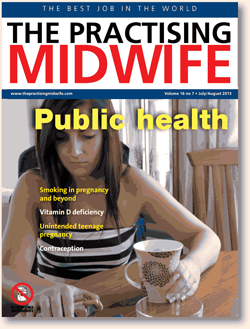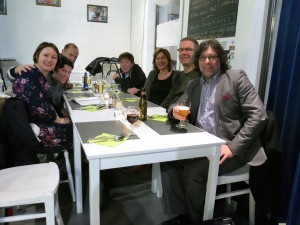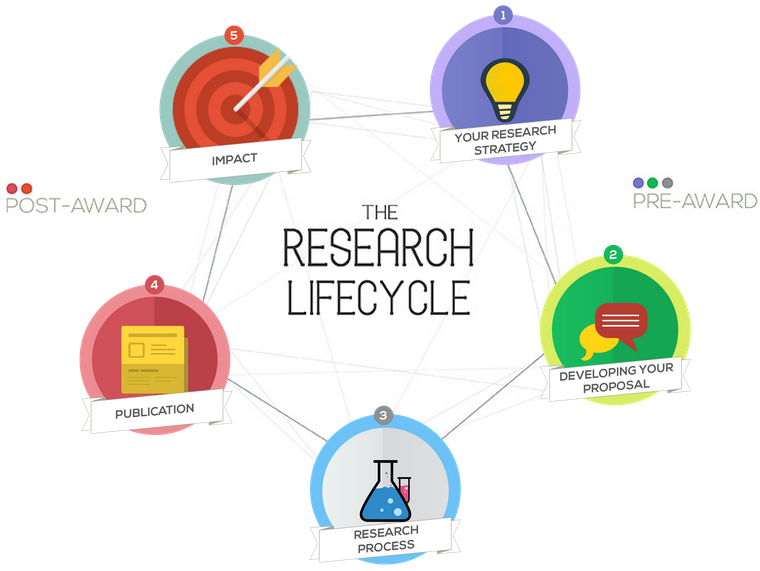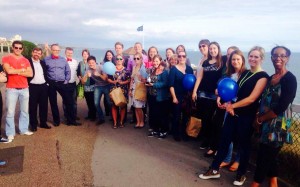 The following funding opportunities have been announced. Please follow the links for more information:
The following funding opportunities have been announced. Please follow the links for more information:
Medical Research Council, GB
Biomedical catalyst – developmental pathway funding scheme
The Medical Research Council invites outline proposals for its developmental pathway funding scheme, under the biomedical catalyst programme. This supports projects aiming to improve prevention, diagnosis, prognosis or treatment of significant health needs, or projects that focus on research tools which increase the efficiency of developing interventions.
Award amount: not specified Closing date 25/03/15
| Engineering and Physical Sciences Research Council, GB
Towards engineering grand challenges – network and multidisciplinary research consortia call
| The Engineering and Physical Sciences Research Council will shortly be inviting applications for its network and multidisciplinary research consortia call under its towards engineering grand challenges scheme.
This call supports multidisciplinary research consortia that can further advance the following engineering grand challenges:
•engineering solutions to sustainably provide water for all;
•future cities – engineering approaches that restore the balance between engineered and natural systems;
•engineering across length scales, from atoms to applications;
•identifying risk and building in resilience into engineered systems, with consideration given only to network plus proposals.
Approximately three awards are available.
Award amount: Not specified Closing date: 28 Apr 15 |
Wellcome Trust, GB
Medical humanities research bursaries |
The Wellcome Trust invites applications for its medical humanities research bursaries. These support small and medium-scale research projects based on library or archive collections supported by the trust. Projects must focus either on Wellcome library holdings or on any collection supported by a previous research resources grant, but they need not be historically grounded.
Applicants must be based in, or travelling to, the UK or Republic of Ireland. Applications are not limited to academic researchers and may be submitted by conservators, artists, performers, broadcasters, writers, public engagement practitioners and others working in the creative arts.
Bursaries are usually worth between £5,000 and £25,000, depending on the duration of research, and may contribute towards travel, accommodation, subsistence and photocopying costs.
Award amount between £5K and £25K: Closing date: 01/04/15 or later round 01/10/15
Economic and Social Research Council, GB
UK in a changing Europe initiative commissioning fund
The Economic and Social Research Council invites applications for its UK in a changing Europe initiative commissioning fund. This aims to promote high quality social scientific research into the nature of the relationship between the UK and the EU, with a particular emphasis on making the findings of this research easily available to non-academic stakeholders. Activities covered under this programme include, but are not limited to;
•synthesising existing research findings;
•producing policy briefs presenting the findings of academic research;
•holding briefings or workshops bringing together academics and non-academic stakeholders.
UK-based researchers from eligible research organisations may apply.
Award amount max: Grants are worth up to £10,000 each. Closing date 28/03/15
Centre for evaluating complexity across the energy, environment and food nexus
The ESRC, in partnership with the NERC, DEFRA, the Department of Energy and Climate Change, the Environment Agency and the Food Standards Agency, invites outline proposals for its centre for evaluating complexity across the energy, environment and food nexus. The centre aims to pioneer, test and promote innovative and inclusive methods to address the challenges of evaluating this complexity across energy, water, environment and food research. The core features of the centre are leadership, methodology development, methods applications and capacity building. Methods must contribute to the generation of evaluation evidence which can help to ensure that policy and practices are effective, and that the best use is made of public money.
Applications are open to any academics, policymakers and local practitioners provided the principal investigator is based at a UK higher education institution or independent research organisation that is eligible for ESRC funding.
Award amount: Max £2,900,000 Closing date 18/03/15
Natural Environment Research Council – NERC, GB
Standard Research Grants
The Natural Environment Research Council invites applications for its standard research grants. This is an open competition for curiosity-motivated basic, strategic or applied research. There are two calls under this programme: standard grants and standard grants for new investigators. Eligibility for the new investigator call is restricted to researchers within three years of becoming eligible for NERC funding as a principal investigator, and who have not received funding as a PI from any source. The PI must reside in the UK and be employed by an eligible UK research organisation.
Grants are worth a min of £65,000 to a max of £800,000 Closing date 21/07/15
Please note that some funders specify a time for submission as well as a date. Please confirm this with your RKEO Funding Development Officer
You can set up your own personalised alerts on Research Professional. If you need help setting these up, just ask your School’s/Faculty’s Funding Development Officer in RKEO or view the recent blog post here.
If thinking of applying, why not add notification of your interest on Research Professional’s record of the bid so that BU colleagues can see your intention to bid and contact you to collaborate.













 The following funding opportunities have been announced. Please follow the links for more information:
The following funding opportunities have been announced. Please follow the links for more information:
















 FHSS academics teaching in Nepal
FHSS academics teaching in Nepal New weight change BU paper
New weight change BU paper One week to go! | The 16th Annual Postgraduate Research Conference
One week to go! | The 16th Annual Postgraduate Research Conference Geography and Environmental Studies academics – would you like to get more involved in preparing our next REF submission?
Geography and Environmental Studies academics – would you like to get more involved in preparing our next REF submission? Congratulations to three former BU staff
Congratulations to three former BU staff MSCA Staff Exchanges 2024 Call – internal deadline
MSCA Staff Exchanges 2024 Call – internal deadline Applications are now open for 2025 ESRC Postdoctoral Fellowships!
Applications are now open for 2025 ESRC Postdoctoral Fellowships! Horizon Europe – ERC CoG and MSCA SE webinars
Horizon Europe – ERC CoG and MSCA SE webinars MaGMap: Mass Grave Mapping
MaGMap: Mass Grave Mapping ERC grants – series of webinars
ERC grants – series of webinars